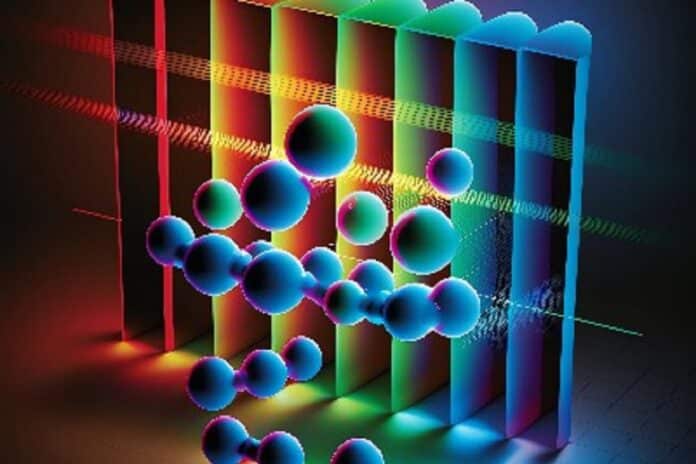Absorption spectroscopy is a common technique for detecting and characterizing gas species at low concentrations. An innovative technique for more precisely detecting and characterizing molecules has been proposed, paving the way for significant advances in environmental monitoring, medical diagnostics, and industrial processes.
The new quantum sensing method proposed by a physicist at the University of Bristol builds on the work of Nobel laureates in physics John Hall and Theodor Hänsch, who developed a frequency comb technique to measure optical frequencies in 2005 accurately. Many fields of science and industry use frequency combs to characterize matter based on the unique way light is absorbed.
However, the precision of optical comb spectroscopy is limited by a fundamental level of noise present in all lasers and other traditional light sources. Squeezed light, a quantum state with reduced noise, can overcome this limitation and has been used to improve the sensitivity of gravitational wave detectors.
Squeezed light is shown in a paper published in Physical Review Letters to significantly suppress noise across a wide range of comb frequencies to probe an absorbing molecule.
Author Alex Belsley, a Quantum Engineering Ph.D. student, said, “This work proposes a new method for monitoring gas species in situ and with high precision. Quantum advantage in sensing can be realized today, and I’m excited for the transformative impact of quantum-enhanced sensors on our society in the coming years.”
This new approach can improve detection limits more than tenfold, allowing different types of gases to be characterized at ultra-low concentrations. It can also determine critical properties such as temperature and pressure with high sensitivity.
Professor Jonathan Matthews, co-director of the Quantum Engineering Technology Labs at the University of Bristol and Alex Belsley’s Ph.D. advisor, said: “Better sensors are important to our future. Healthcare, manufacturing, environmental monitoring, and new science all benefit from advances in measuring physical properties. Alex’s work shows how squeezed light can improve frequency comb spectroscopy. The next step is to explore further with experiments in the lab.”
The UK National Quantum Technologies Programme, the EPSRC Centre for Doctoral Training in Quantum Engineering, and the European Research Council funded the study.
Journal Reference:
- Alexandre Belsley, etal. Quantum-Enhanced Absorption Spectroscopy with Bright Squeezed Frequency Combs.Physical Review Letter. DOI: 10.1103/PhysRevLett.130.133602
